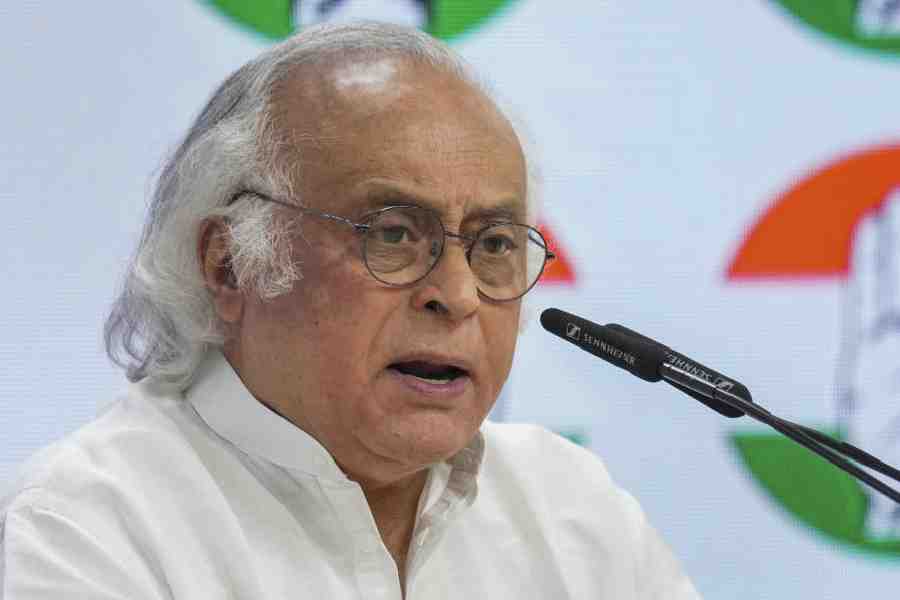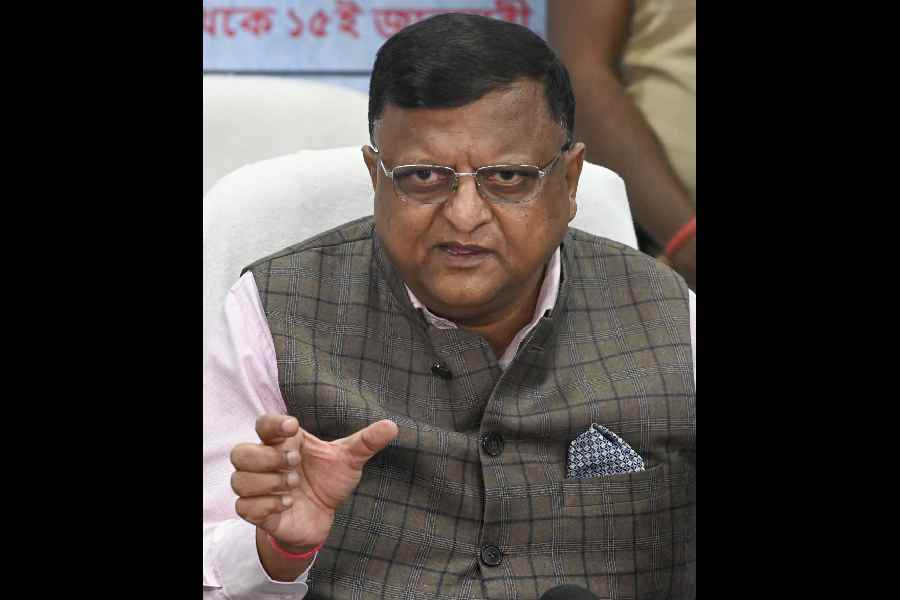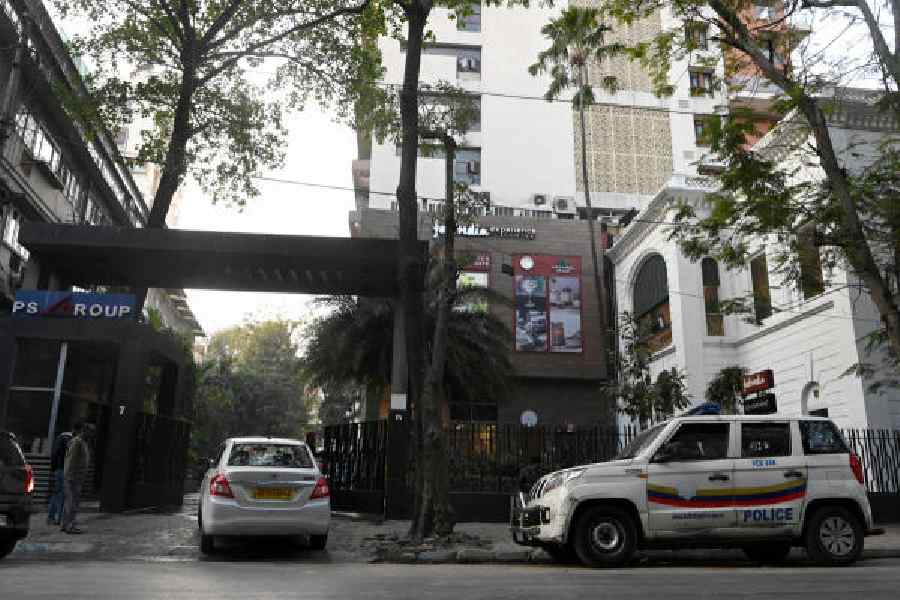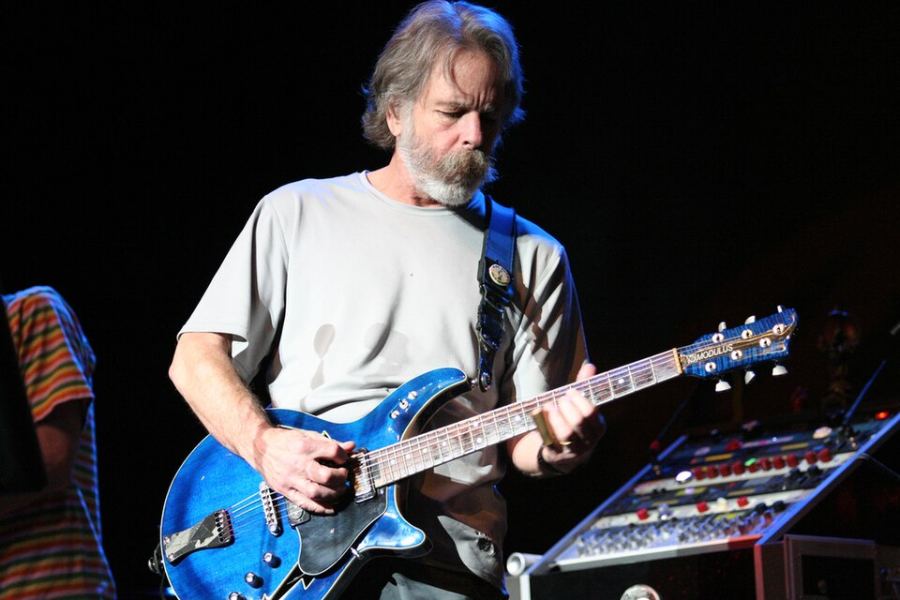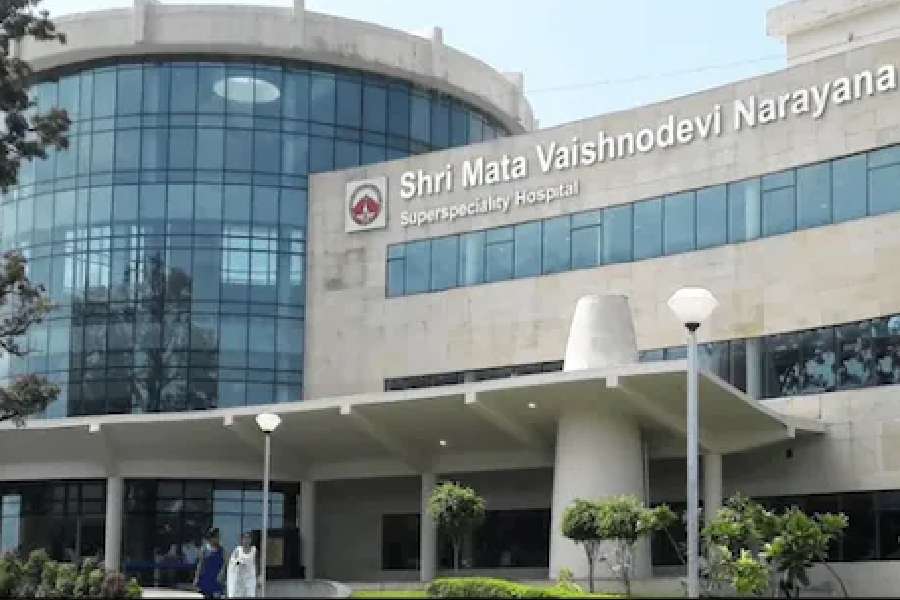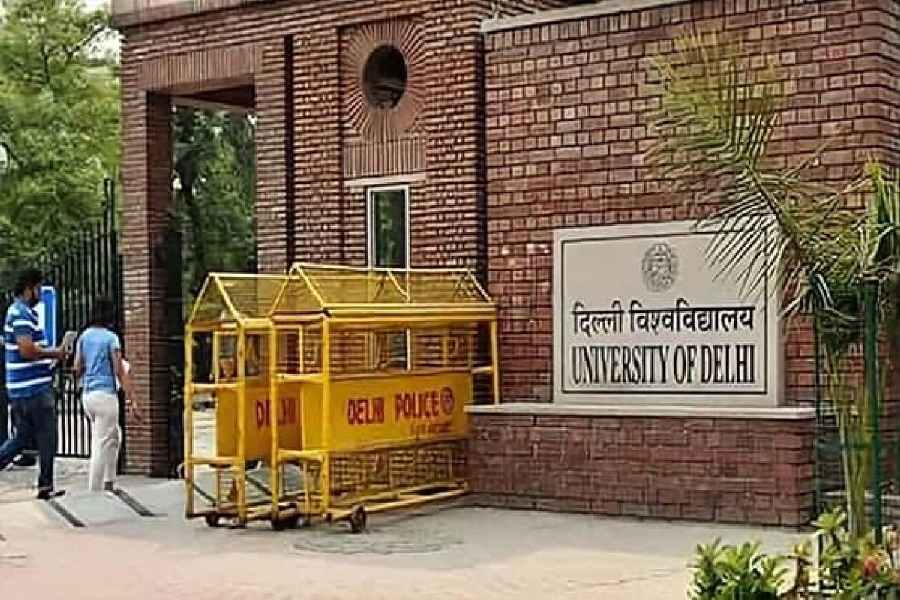 |
| TN Seshan in February 1995. He was chief election commissioner from 1990 to 1996 |
At the SSM Residency, a senior citizens’ home 25km from Chennai, the VVIP resident happens to be a former chief election commissioner who made Indian elections what they are now — free, fair and far more transparent.
But ask SSM residents and they will tell you that T.N. Seshan and his wife Jayalakshmi keep to themselves whenever they come over to live in the cottage they purchased a decade ago.
Seshan (81) spends most of his time at his bungalow in south Chennai since it is easier for friends and relatives to meet him there rather than travel all the way to New Perungalathur where the seniors’ home is located.
“But he returns here if he needs a break and enjoys the quiet and greenery, taking walks but mostly listening to devotional and Carnatic music and watching news on TV,” said an attendant at the home.
Kalyani, a resident at the home for over six years, recalls having seen Seshan and his wife only a few times since their cottage is located away from the apartment blocks occupied by middle-class retirees and their spouses. The Seshans have no children.
According to a close friend, Seshan was devastated by the passing of Puttaparthi Satya Sai Baba in 2011 and the senior citizens’ home became a refuge for him till he overcame his grief at his guru’s death. After a few months, he returned to his city residence and has not gone back to the SSM Residency for a while.
“Most of our residents lock up their apartments and go to the US for six months to spend time with their children. So it is not unnatural if Seshan does not use his cottage for months together. It is paid up for the durations of his and his spouse’s lifetimes, anyway,” said S. Govindaraj, the supervisor.
Seshan used to joke that Palakkad in neighbouring Kerala, where he was born, was famous for crooks and cooks. Seshan qualified at least partially, as he was known to be a good cook who could whip up a decent masala dosa. But at the old-age home, he prefers to have his food from the facility’s vegetarian kitchen as he has “retired from cooking as well”.
During the brief tenure of the Chandra Shekhar government when the then law minister, Subramanian Swamy, had Seshan appointed as chief election commissioner in December 1990, the IAS lobby had quipped that the Harvard connection had swung the job for Seshan. He had done his master’s from there while Swamy was a visiting professor.
 |
| The administrative block of the senior citizens’ home where Seshan and his wife stay occasionally |
The feisty Seshan donned a new avatar as CEC. He read up the Constitution and asserted the total superiority of the commission when it came to conducting free and fair elections.
He made photo ID cards mandatory, took control of the administration and police of any state going to the polls, and attempted to ram through other electoral reforms. It was during his tenure that Seshan established the Election Commission as a truly autonomous body that did not take orders from the central government.
“Show me one instance where I have done anything that is not stated in the Constitution about the powers of the Election Commission, and I will quit,” used to be Seshan’s punch line whenever he was asked whether he was being a bull in a china shop.
Indeed, he used to enjoy the moniker “Al-Seshan” given to him by the media while referring to his dogged fights against the government. “Don’t I resemble a bulldog more?” he asked once.
Seshan’s first laboratory for wielding the broom — now the election symbol of another man who has shot into the limelight mocking the political class, the Aam Aadmi Party’s Arvind Kejriwal — was Bihar, that famed cesspit of electoral malpractice — booth-capturing, bogus voting, rigging, and often violent intimidation of voters.
Cleaning up the 1995 Bihar Assembly polls was a mission Seshan took to with messianic zeal, determined to impose a “free and fair” election on the graveyard of elections.
He sent an astounding and unprecedented 650 companies of paramilitary forces into the state, staggered the vote into four phases and went on to call four more postponements. The elections had been notified on December 8, 1994; the last ballot was cast only on March 28, 1995.
During that time, Seshan ensured that his reputation not merely left Bihar’s politicians, including the formidable chief minister Lalu Prasad, trembled, but also that it travelled the length and breadth of India: the no-nonsense man who would go to the extent of holding no elections at all if he could not hold what he thought a free and fair one.
Seshan may, indeed, have pioneered — and presaged — the Kejriwal brand of disdain and derision for the political class, painting it with broad-bristle strokes as a bunch of corrupt carpetbaggers that needed strong medicine.
“Do you think I should allow politicians to commit dacoity on democracy?” Seshan once shot back when asked if he was not overdoing his restrictions on the electoral process in the name of cleansing it.
“While I am here, it is I who will decide how elections are to be held; politicians have got away with nonsense for far too long.”
Way back in 1991, during the first of many run-ins with then Prime Minister P.V. Narasimha Rao, Seshan had clinched a conversation and had his way on electoral norms with a bluntness that typified him.
“Mr Prime Minister,” he had told Rao, “the only offices I aspire to now are those of the President and Prime Minister of India and, to my advantage, both are occupied.”
Seshan would seek, a few years down the line in 1997, endorsement to become President of India, but he had rendered his reputation such that no political party was willing to trust him as occupant of Rashtrapati Bhavan.
His refrain during the brief period he sought the nation’s highest office was remarkably akin to the prophet poses of Kejriwal.
“Give me 10 years,” he told a convocation of a Kanpur women’s college he had been invited to chair, “and I can make Mera Bharat mahaan again. It will take me 10 years, no more, but do you have the courage for it?”
Speaking clearly to the political class whose support he was seeking for the presidency of India, he went on: “I am a mirror; I show you what you are. If you see pimples, don’t blame me, go out and buy Clearasil.”
Seshan contested the presidential election as an Independent backed by the Shiv Sena and ragtag others, against K.R. Narayanan, only to lose badly garnering a mere 240 votes against Narayanan’s 4,231.
Seshan’s reform initiatives can be grouped into four categories — insuring the autonomy and integrity of the Election Commission, empowering the voters, reforming or changing electoral procedures and changing the election laws. His firm enforcement of the model code of conduct stopped state governments from announcing sops, using government machinery and transferring inconvenient officials.
Seshan also clamped down on election expenses and ostentatious campaign displays, which resulted in fewer wall graffiti or noisy loudspeakers and a time limit of 10pm.
When he was accused of robbing the Indian elections off their sound, colour and festive atmosphere, Seshan retorted that elections were serious business and not entertainment. “If they want sound and colour, the cinema halls are always open,” he said.
Ahead of the 1996 general election, the Narasimha Rao government, in a bid to clip his unbridled authority, expanded the commission into a three-member body and drafted in M.S. Gill and G.V. Krishnamurthy as commissioners. The government said that the majority view among the three commissioners would abide.
Seshan had a stormy relationship with these two after he unsuccessfully challenged their appointment in the Supreme Court.
“It is Seshan’s legacy of unshackling the Election Commission that has led to the present situation where political parties look up to the EC as a tough but impartial umpire,” said N. Gopalaswami, former CEC.
Today, at 81, Seshan’s stentorian voice has developed a quaver, his erect gait has been weakened by his arthritic knees, and he has withdrawn into total privacy, refusing media interviews.
He spoke loudly enough during his years on centre stage, and the changes he wrought are still at play.
 |
The Telegraph front page on March 12, 1995, reports the casualties of the first phase of the Assembly polls in Bihar on March 11. T.N. Seshan, the then Chief Election Commissioner, had described the elections in Bihar as “the toughest examination” of his life. The elections were rescheduled as many as four times and many officials, including the state home secretary and the DGP, were transferred. Violence still scars elections in Bihar but the intensity has subsided dramatically and the loss of lives has come down. Big clashes in the last Assembly elections in 2010 were largely confined to the Maoist-affected areas. |


